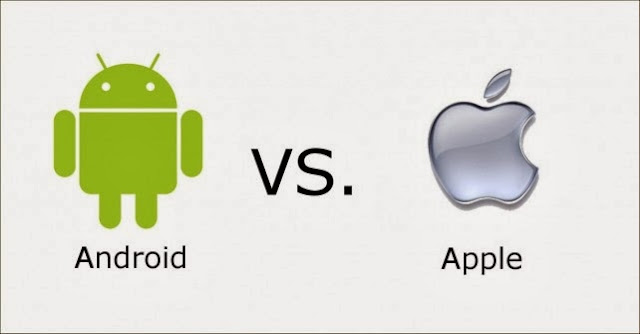Android is big in tablets. The problem is that no one has a clue how big it is. While Apple happily reports its rising unit sales for tablets, Samsung and other major Android distributors keep mum. Hence, we're largely left in the dark as to just how many Android tablets are being bought and used.
But developers may help us understand Android's market penetration.
Android's 'Dark Matter'
By some estimates, Android will claim as much as 65% of the tablet market in 2014. IDC puts the number a bit lower, but by any estimate Android is booming.As in smartphones, Android adoption is on overdrive due to giving consumers, particularly in developing markets, a low-cost alternative to Apple's premium pricing. Commenting on Android's rise, Canalys senior analyst Tim Coulling argues that "Apple’s decline in PC market share [which includes tablets] is unavoidable when considering its business model."
Well, maybe.
 |
| IDC Analysis about Andriod and iOS, |
The problem is counting Android accurately. Asymco analyst Horace Dediu, commenting on Benedict Evans' analysis of Android use, highlights the difficulty in getting an accurate read on Android tablet adoption:
There are no firms which report their shipments They are not sold through retail chains which normally are sampled in the US and Europe (NPD and GfK respectively.)
They don’t show up in browsing or ad transaction data
Google Play statistics are missing most of the activations since they are not sold as bona fide Google-sanctioned Android.
Not long ago Apple announced that developers had minted $13 billion selling apps for the iOS platform. Google doesn't report similar data for Android, in part because it can't due to the fragmented Android ecosystem, but Business Insider has compiled its own statistics, which show Android well behind iOS but closing the gap:
| BI Analysis about Andriod and iOS, |
Android developers are likely to get paid even more going forward, as Google has significantly ratcheted up its efforts to improve monetization for Android developers. Indeed, speaking at Google I/O earlier this year, Google's VP of Android product management Hugo Barra told I/O attendees that Google had paid more to Android developers in the 4 months leading up to I/O than the previous 12 months before that combined.opers.
IDC Analysis
Apple may have shipped a record number of iOS devices during the most
recent quarter, according to analysts at IDC. But the real story is the
utter dominance of Android, which is gobbling so much market share that
Apple could soon find itself in the single digits.
Android’s share of the mobile phone market topped 80 percent
of units shipped for the first time since IDC began tracking the
Google-created operating system, the research firm said in its release
of its most recent quarterly figures. Apple, by contrast, captured just
under 13 percent of the market.
| IDC Analysis about Andriod and iOS, |
The triumph of Android would seem to vindicate Google’s choice not to
go head-to-head against Apple with its own proprietary mobile operating
system and hardware. In retrospect, it was a no-brainer decision, owing
to one very obvious precedent.
Back in the mid-1980s, several competing personal computing platforms
owned somewhat comparable pieces of the operating system market. Apple,
Commodore, Atari, and IBM were all in the picture, each with an
apparent fighting chance. But as the decade wore on, systems referred to
at the time as IBM and its clones shot up in one of corporate history’s
most legendary hockey sticks. The real winner in that ascendancy was
Microsoft, the software platform powering all those machines.


Hi guys, when I am actually willing of reading these blog post to be updated regularly. It offers fastidious stuff.
ReplyDeleteiPhone developer in Pakistan
We are starting regualar postings on this blog soon. Teampk212
DeleteI want more and more articles and blogs please post soon such informative information.
ReplyDeleteAndroid Developer in Pakistan